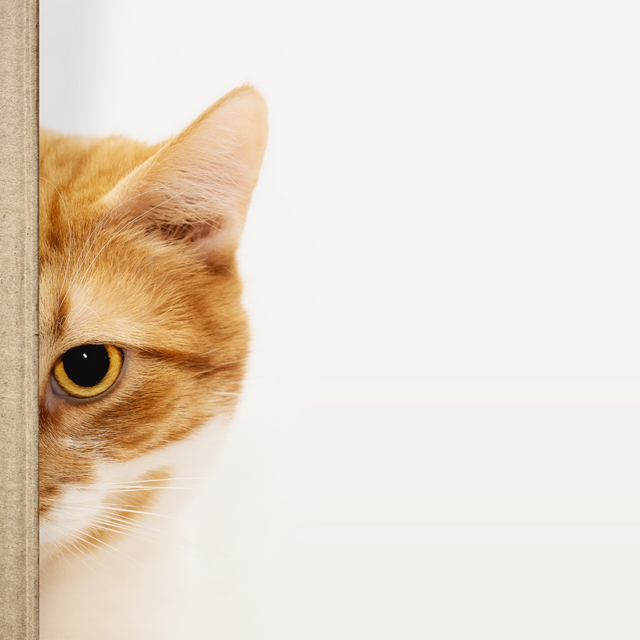Cat Block Bladder Disease
What's Block Bladder Disease in Cats?
A block bladder means that the cat can't pee or feel pain when urinating due to any obstruction in the bladder or ureters. An obstructed bladder is a serious problem; if overlooked, it could potentially cause renal system damage, cardiovascular disease, and might burst, resulting in peritonitis and even death of your cat. If your cat is straining to pee and producing a little urine, it might be going through Block Bladder Disease. The blockage might be caused by compression or inflammation of the urethra or just an obstruction.
Warning Signs of Block Bladder Disease
The 1st symptom of block bladders disease is straining to pee. This might seem like bowel obstruction since the cat might be seen going to the litter box more time and hunching in discomfort. Due to the irregular passage of pee, urine flow might be disrupted and appear cloudy. If the urine color is noted, it might seem blood-tinged and dark.
The pain causes several cats to scream out, and they'll stop eating food and get stressed out. If your cat doesn't get medical care on time, kidney failure may develop. Things can get life-threatening within 3-days of symptoms.
An obstructed bladder might cause the following problems:
- Regular visits to the litter box and producing little pee
- Pushing to urinate
- Screaming when trying to urinate
- Licking all-around their back-end
- Blood in the pee
- Eating less food or off-food totally
- A very painful abdomen
- Nausea or vomiting
- Lethargy and weakness
Causative Factors of Blocked Bladder Disease
There are several known risks for a urinary system blockage, such as stones, bladder disease (specifically common in female felines), and prostate gland disease (in male cats).
The build-up of minerals in the urinary system might also result in an obstruction (stones or crystals). Additionally, lesions, scar tissue, and tumors can cause a blockage.
An obstructed bladder may be the result of:
- Feline Interstitial Cystitis (FIC) - quite common in cats
- Crystals in the pee (Crystalluria)
- Stones or Crystals in the Bladder
- Inflammation of Bladder (Cystitis)
- Bladder tumors (Urothelial Carcinoma)
- A thin urethra
Female felines rarely develop obstructed bladders. Male cats are more prone to develop the problem as their urethra (the thin tube that empties pee from the bladder) is a lot longer, narrow, and vulnerable to obstruction. Obstructions are common in obese felines, indoor kittens and cats, cats that eat dry food, stressed cats, and neutered cats.
Diagnosis of Block Bladder Disease
The vet will thoroughly examine the cat's belly. The increased pressure causes serious renal system damage and the inability to discharge urine and other waste usually eliminated in pee. This leads to a higher level of potassium in the bloodstream. A preliminary baseline blood panel is crucial to figure out the proper fluids along with other treatments that might become mandatory.
As the treatment advances, more blood samples might be used to identify alterations in the cat's condition. More blood tests and imaging, such as ultrasound or X-rays, might be helpful to identify the cause of the blockage and other adding illnesses or diseases.
When should you consult your veterinarian?
Consult your veterinarian immediately for an emergency consultation if your feline has problems urinating. Never hesitate from getting your cat checked by the vet - if neglected, obstructed bladder could potentially cause death.
- You better understand your cat - if you are worried, it is best to call your veterinarian.
- Having an obstructed bladder (not being able to urinate) is an emergency situation and you shouldn’t wait for it to resolve on its own. Call your veterinarian for an emergency consultation if the cat cannot urinate.
- You should be ready to consult your vet on emergency basis if your cat has suffered urinary obstruction recently.
Treatment of Block Bladders Disease in Cats
If the cat has an obstructed bladder, he/she will need a lot of care in a vet's clinic until it is out of danger and the bladder is working normally after removal of obstruction - it will take a couple of days.
Your cat may need several examinations to determine what has caused the problem.
It is easy to unblock your cat's bladder by placing a thin tube in the penis and enabling the pee to strain out. Your veterinarian might use several medicines and fluids to treat any infection, spasm, crystals, or pain.
Several cats require surgical treatment - for example, if a big stone is obstructing the tube and requires removing, or maybe the urethra (a thin tube that empties urine from the Bladder) is very thin. Regrettably, several obstructions are not very easy to cure, for example, large tumors.
Proper care after an obstruction
When your cat has experienced blocked bladder disease once, there's a possibility that it will suffer from this problem again. To stop this problem from happening, you will have to follow your veterinarian's recommendations to make several changes to your cat's diet and lifestyle. These alterations might include:
- Giving a special diet (for a lifetime)
- Helping them to drink much more
- Lessening daily levels of stress
- Weight-loss (if overweight)
- Medicine for treatment of infection, spasm, crystals, or pain.
It is necessary to be mindful of your cat's toileting routines if they've experienced an obstructed bladder recently.
Your veterinarian might request you collect a urine sample from the cat and provide it for urine analysis.
Prevention
For all those felines that go through continuing symptoms of Block Bladder Disease, several alterations in the home might help avoid repeated episodes:
Enhance intake of water. You can do this by flavoring the cat's water (including a bit of no-salt tuna juice or chicken soup) or even by feeding processed food.
Give your cat the best quality food, easily digestible food.
Reduce stress. Stress might cause episodes, thus keep your cat's life as happy as you can.
Keep a couple of clean cat litter boxes available at all times.



0 Comments
There are no comments for this article. Be the first one to leave a message!